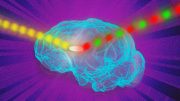
A new Alzheimer’s drug, donanemab, expected to be approved by the FDA, shows promising results in slowing cognitive decline in patients with mild disease. Despite this, caution is urged due to potential serious side effects, and concerns have been raised over lack of diversity in trials and the anticipated high cost of treatment.
The FDA is anticipated to approve a third Alzheimer’s drug, donanemab, signaling progress in slowing the disease. The drug showed a 35% slowdown in cognitive decline in patients with mild disease, but the benefit was less apparent in advanced cases.
Progress in Alzheimer’s Treatment
With the impending approval of yet another Alzheimer’s drug by the Food and Drug Administration (FDA), the field is showing signs of progress in the fight to slow the disease.
However, these drugs are most effective for those in the early stages of Alzheimer’s. According to Gil Rabinovici, MD, director of the University of California, San Francisco (UCSF) Alzheimer’s Disease Research Center, additional therapies will be needed for those with advanced disease.
He has suggested that this is “just the opening chapter in a new era of molecular therapies for Alzheimer’s disease and related neurodegenerative disorders.”
Donanemab: A Promising New Alzheimer’s Drug
Rabinovici made these remarks in an editorial accompanying the results of the latest drug, donanemab, published on July 17, 2023, in JAMA. Like the two earlier Alzheimer’s drugs, aducanumab (Aduhelm) and lecanemab (Leqembi), donanemab is a monoclonal antibody. These drugs attack brain plaques made of a protein called amyloid, disrupting cell function and accelerating the spread of another protein, tau. Both amyloid and tau are involved in Alzheimer’s disease progression.
The donanemab trial indicated that it slowed cognitive decline by 35% compared with placebo in patients with low-to-intermediate levels of tau in the brain. Similar results were reported with Leqembi, which received FDA approval earlier in the month. Furthermore, patients in the donanemab trial had a 40% lower risk of progressing from mild cognitive impairment to mild dementia, or from mild to moderate dementia.
Efficacy and Risks of Donanemab
Donanemab was found to be more effective at removing amyloid plaques compared to Aduhelm and Leqembi. It also decreased tau concentrations in the blood, but not in a key area of the brain.
Despite these promising results, Rabinovici stressed the need for thorough analysis to understand how these findings affect patient outcomes.
Limitations of Donanemab
Patients with more advanced disease demonstrated little to no benefit compared to those who received the placebo. Along with the drug’s potential serious side effects, this should encourage experts to “aim higher in developing more impactful and safer treatments,” wrote Rabinovici, who is affiliated with the UCSF Memory and Aging Center, departments of Neurology, Radiology and Biomedical Imaging, as well as the Weill Institute for Neurosciences.
Donanemab should be limited to patients with low-to-intermediate levels of tau, indicating mild disease. Further trials are underway to evaluate the efficacy of monoclonal antibodies in the earliest phase of the disease before symptoms appear.
Side Effects and Precautions
Like the two other new Alzheimer’s drugs, donanemab was associated with ARIA, amyloid-related imaging abnormalities that may include brain swelling and microbleeds. Serious ARIA occurred in 3.7% of patients, including three fatalities. Risks were higher among patients with the APOE4 gene, which increases Alzheimer’s risk. For this reason, Rabinovici recommends genetic testing prior to monoclonal antibody treatment.
While ARIA has generally been managed safely in clinical trials, Rabinovici urges caution as these drugs transition into real-world practice. He advocates for limiting access to patients with normal pre-treatment MRIs, conducting regular MRIs, and discontinuing or suspending treatment if ARIA occurs.
Ethical Concerns and Feasibility
A significant limitation of the trial was the lack of racial and ethnic diversity. Only 8.6% of the 1,251 U.S. participants were non-white, raising ethical concerns about the “generalizability of results to populations at highest risk.” Rabinovici notes studies that have shown higher rates of dementia in Black and Latino populations.
Considering the projected high cost of donanemab and high patient demand, Rabinovici suggests limiting the treatment duration to the time needed to clear amyloid plaques from the brain. This approach could “greatly enhance the feasibility of treatment for patients, clinicians, insurers, and health systems,” he stated.
References:
“Donanemab in Early Symptomatic Alzheimer Disease: The TRAILBLAZER-ALZ 2 Randomized Clinical Trial” by John R. Sims, MD; Jennifer A. Zimmer, MD; Cynthia D. Evans, PhD; Ming Lu, MD, MS, MPH; Paul Ardayfio, PhD; JonDavid Sparks, PhD; Alette M. Wessels, PhD; Sergey Shcherbinin, PhD; Hong Wang, PhD; Emel Serap Monkul Nery, MD; Emily C. Collins, PhD; Paul Solomon, PhD; Stephen Salloway, MD; Liana G. Apostolova, MD; Oskar Hansson, MD, PhD; Craig Ritchie, MD, PhD; Dawn A. Brooks, PhD; Mark Mintun, MD and Daniel M. Skovronsky, MD, PhD for the TRAILBLAZER-ALZ 2 Investigators, 17 July 2023, JAMA.
DOI:
“Amyloid-Targeting Monoclonal Antibodies for Alzheimer Disease” by Gil D. Rabinovici, MD and Renaud La Joie, PhD, 17 July 2023, JAMA.
DOI:
Co-Author: Renaud La Joie, PhD, of the UCSF Memory and Aging Center and Department of Neurology.
Funding: Rabinovici is supported by NIH P30-AG062422, R35-AG072362, U01-AG057195, R56-AG075744 and Alzheimer’s Association ZEN-21-848216. La Joie is supported by NIH P30-AG062422, K99AG065501, and Alzheimer’s Association AARG-22-926899.
Disclosures: Rabinovici receives research support and has provided paid consulting for Eli Lilly, the manufacturer of donanemab. For other disclosures, please refer to the paper.









Be the first to comment on "Donanemab: The Breakthrough Drug Ushering a New Era in Alzheimer’s Treatment"